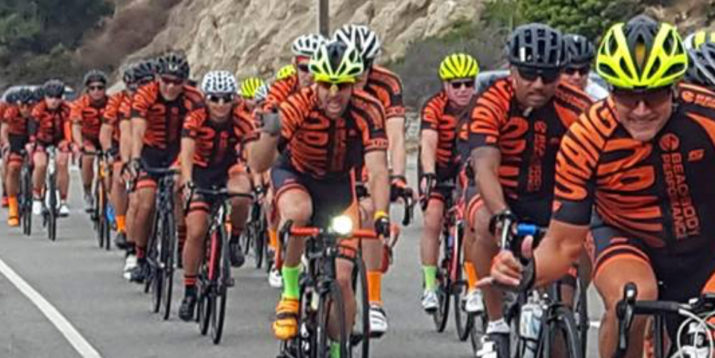Optimal Timing of Low-Dose Caffeine Ingestion in Trained Cyclists

Authors: Andrew D. Davenport, Catherine R. Mikus, Benjamin T. Wall, Nima Alamdari & Francis B. Stephens
The use of caffeine to improve physical and cognitive performance is widespread among athletes (Del Coso, Muñoz, & Muñoz-Guerra, 2011, Applied Physiology, Nutrition and Metabolism, 36(4), 555–561). Low-dose caffeine (<3 mg per kg−1 of body mass; ~200 mg of caffeine) has been shown to provide ergogenic effects without the negative side effects often reported with higher doses (Spriet, 2014, Sports Medicine, 44, S175–S184). However, research on the most efficacious time to consume caffeine is limited.
The aim of this study was to assess the effect of timing of ingestion of a commercially available caffeine drink (Energize™, Beachbody, LLC, USA), on exercise performance and perception of effort. With institutional ethics approval, 13 (12 male, 1 female) cyclists (27 ± 2 years; 70.8 ± 2.2 kg; VO2 max: 64.5 ± 1.4 ml. kg−1.min−1 (±SEM)) completed four experimental visits after an overnight fast, separated by ≥1 week. Each visit consisted of participants resting (REST) for 30 min before performing 30 min of steady state (SS) exercise on a cycle ergometer at around 80% VO2max (243 ± 8 W) followed by a 15-min timetrial (TT), with perceived exertion (RPE) measured every 10 min during SS and every 5 min during TT. In addition, before the REST, SS, and TT phases, whilst seated on the ergometer, participants consumed a 473 ml test drink (i.e. three 473 ml drinks per visit). The drinks contained 200 mg caffeine (CAFF) or a caffeine-free, taste-, colour-, and calorie-matched placebo, and were administered in a double-blind, random order such that each visit tested the timing of caffeine ingestion as follows: CAFF before REST, placebo before SS and TT (CAFF-REST visit); CAFF before SS, placebo before REST and TT (CAFF-SS); CAFF before TT, placebo before REST and SS (CAFF-TT); Placebo before REST, SS, and TT (PLA). Differences in TT performance and RPE were identified using a repeated measures one- and two-way analysis of variance, respectively. Total work performed during TT in CAFF-REST was greater than PLA (3.53 ± 0.14 vs. 3.36 ± 0.12 kJ.kg−1 body mass; P = 0.005), and not CAFF-TT (3.39 ± 0.13 kJ.kg−1- or CAFF-SS (3.44 ± 0.14 kJ.kg−1; P = 0.231), which were similar to PLA. Furthermore, there was a treatment effect (P < 0.05) for RPE during SS, with the lowest values seen in the CAFF-REST condition compared to PLA and CAFF-SS combined (P < 0.05), but no differences were seen during TT when more work was performed. In summary, ingestion of CAFF 30 min before intense SS exercise reduced RPE and improved subsequent 15-min TT performance, whereas ingestion immediately before SS or TT had no effect. This suggests that low-dose caffeine should be ingested ≥60 min before expected fatigue for optimal performance.
Learn more about Beachbody Performance™ products and research on the Beachbody Science page.
